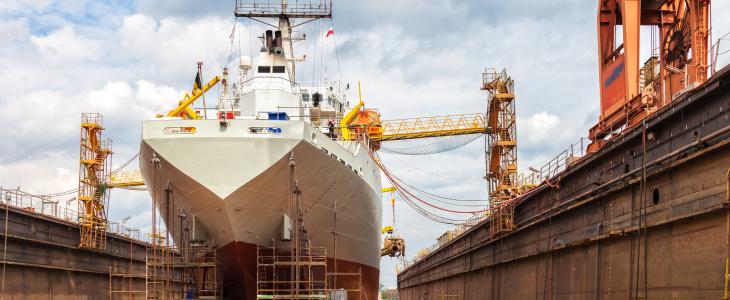Shipyard Safety: Your Rights As An Injured Maritime Worker

Working in a shipyard is considered hazardous work. The Occupational Safety and Health Administration (OSHA) classifies shipyard injury-accident rates as twice as high as those in the construction and general industry. With these rates, the OSHA specifically drew up a Strategic Plan to help reduce and prevent injuries and fatalities. Learning about shipyard safety is critical to maritime workers, particularly when it involves your rights after you have been injured. The dedicated Savannah workers’ compensation attorneys of Parsons Law Group are capable of helping your case if you have been injured in a shipyard accident.
Understanding the Basics of Shipyard Safety
29 CFR 1915.2 of the Occupational Safety and Health Standards for Shipyard Employment defines shipyard employment as work that involves ship repairing, building, breaking, and any other related employment. Some common aspects of shipyard work include:
- Welding
- Fabrication
- Soldering
- Electrical work
- Demolition
- Drilling
- Applying and removing paint
- Chemical and fuel residue clean-up
Understanding the potential dangers that accompany this type of work is necessary to enact appropriate safety measures. The general requirements of the OSHA outline the basics of safety ranging from access and guarding of work surfaces to typical health hazards that can be encountered.
Common Hazards Faced by Shipyard Workers
Working under such hazardous conditions, the shipyard worker should be aware of the risks and common hazards often faced by workers. By being knowledgeable of these hazards, greater safety measures can be implemented. Some common hazards faced by shipyard workers are:
- Slip and falls: Commonly caused by wet, slippery surfaces or uneven terrain. Falls can lead to severe injury that may require extensive recovery time.
- Machinery accidents: Heavy machinery such as forklifts and cranes poses high risks for crushing and other serious injuries if mishandled or poorly maintained.
- Exposure to harmful substances: Coming in frequent contact with hazardous chemicals often containing asbestos and lead, that could cause cancers such as mesotheliomas.
- Hot work and cramped spaces: Working in spaces with little wiggle room can cause musculoskeletal injuries from holding awkward body positions. Furthermore, confined spaces such as engine rooms could wield high temperatures resulting in poor ventilation and overheating.
Other chronic illnesses causing long-term effects can also affect the shipyard worker. Knowing your legal rights in these working conditions is critical.
Understanding Your Legal Protections
In Savannah, shipyard workers who suffer on-the-job injuries are covered under specific legislation such as:
- The Jones Act (46 U.S.C. § 30104): Also known as the Merchant Marine Act of 1920 enables shipyard workers, often classified as seamen to claim damages from their employers for any injuries caused by negligence aboard a vessel. To qualify, the employee must spend at least 30% of their time aboard the vessel. While workers directly employed in the shipyard may not qualify for seamen status, claims under this act can include compensation for pain and suffering, lost wages, and medical expenses.
- Longshore and Harbor Workers’ Compensation Act (LHWCA): This specifically covers shipbuilders, harbor construction workers, and other related professions not included under the Jones Act. Compensation is given for medical treatments, lost wages due to disability, and any rehabilitation costs incurred from injuries or diseases.
When determining where a worker falls under these two acts, it is wise to consult the experienced attorney at Parsons Law Group to help you understand your rights and options.
Handling Injuries: What to Do After a Maritime Work-Related Injury
After an injury, you may not be thinking clearly about your next steps. However, you must take the following steps:
- Report the injury: Inform your employer about the injury. There is a time limit of 30 days to do so.
- Seek medical attention: Your health is your priority. Ensure that proper and detailed documentation is given to help support your claim.
- File a claim: Contact an experienced maritime injury attorney to determine the legal framework that your case falls under so that you can file an appropriate claim.
You have the right to follow through with these initial steps and any coercion from your employer could result in legal action.
The Role of Workers Compensation Attorneys for Injured Maritime Employees
Attorneys specializing in workers’ compensation can provide invaluable assistance, maximizing the likelihood of a favorable outcome in compensation claims. The role of the attorney for injured employees are:
- Evaluating your case
- Claims filing and management
- Maximizing your compensation
In case a fair settlement cannot be reached, the attorney will represent you in court.
Why You Need a Savannah Workers Compensation Attorney for Your Case
The complex workings of filing a workers’ compensation claim in Savannah can be rather daunting, especially while you are focusing on your recovery. Having knowledgeable and dedicated attorneys can make a difference for you. You do not have to do this alone. Contact us today to schedule a consultation.











